
Tranquil Paradise: Ofu Island in Tonga
Nestled in the heart of Tonga, Ofu Island is a hidden gem waiting to be discovered. This tranquil paradise is perfect for those seeking peace, serenity, and stunning natural beauty. The island's pristine beaches are fringed with palm trees and offer clear, turquoise waters that are perfect for swimming, snorkeling, and diving. The vibrant coral reefs just offshore are teeming with colorful marine life, making it a haven for underwater enthusiasts. Beyond its breathtaking beaches, Ofu Island is rich in cultural heritage. The local village offers a glimpse into traditional Tongan life, where you can experience warm hospitality and learn about local customs and crafts. The island's lush interior, with its dense tropical forests and scenic hiking trails, provides opportunities for nature walks and bird watching. For those looking to escape the hustle and bustle, Ofu Island offers a true retreat. With limited commercial development, the island maintains its natural charm and tranquility. It is an ideal destination for eco-tourists, adventurers, and anyone looking to unwind in a pristine, unspoiled environment.
Local tips in Ofu Island
- Bring cash, as there are limited ATM facilities on the island.
- Respect local customs by dressing modestly when visiting villages.
- The best time to visit is during the dry season from May to October.
- Consider bringing your own snorkeling gear to fully enjoy the underwater world.
- Try the local cuisine, especially fresh seafood and traditional Tongan dishes.
Tranquil Paradise: Ofu Island in Tonga
Nestled in the heart of Tonga, Ofu Island is a hidden gem waiting to be discovered. This tranquil paradise is perfect for those seeking peace, serenity, and stunning natural beauty. The island's pristine beaches are fringed with palm trees and offer clear, turquoise waters that are perfect for swimming, snorkeling, and diving. The vibrant coral reefs just offshore are teeming with colorful marine life, making it a haven for underwater enthusiasts. Beyond its breathtaking beaches, Ofu Island is rich in cultural heritage. The local village offers a glimpse into traditional Tongan life, where you can experience warm hospitality and learn about local customs and crafts. The island's lush interior, with its dense tropical forests and scenic hiking trails, provides opportunities for nature walks and bird watching. For those looking to escape the hustle and bustle, Ofu Island offers a true retreat. With limited commercial development, the island maintains its natural charm and tranquility. It is an ideal destination for eco-tourists, adventurers, and anyone looking to unwind in a pristine, unspoiled environment.
When is the best time to go to Ofu Island?
Iconic landmarks you can’t miss
Mapu'a Vaea Blowholes
Discover the stunning Mapu'a Vaea Blowholes in Tonga, where ocean waves create spectacular water displays against a breathtaking landscape.
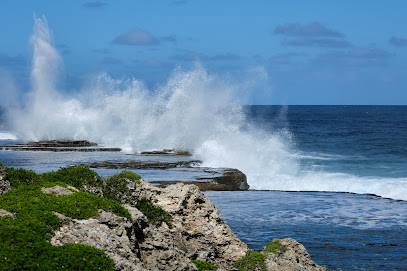
Royal Palace of Tonga
Discover the Royal Palace of Tonga, an iconic historical site that reveals the splendor of Tongan royalty and cultural heritage in Nuku'alofa.
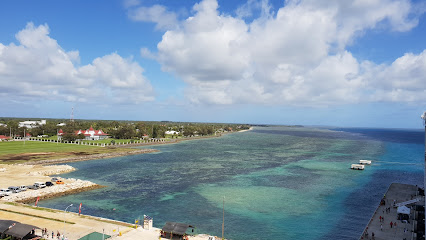
Anahulu Cave
Explore the breathtaking beauty and cultural significance of Anahulu Cave in Haveluliku, a must-visit destination for adventure seekers and nature lovers alike.
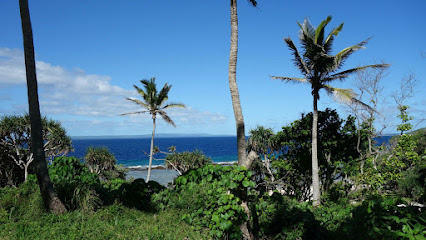
Royal Tombs
Explore the Royal Tombs in Nuku'alofa, a captivating historical landmark reflecting Tonga's royal heritage and cultural legacy.
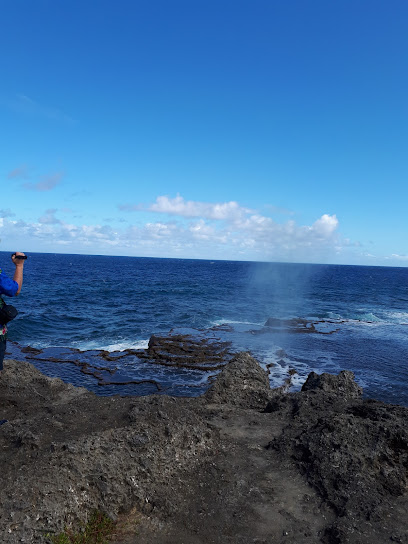
Ancient Tonga
Explore Ancient Tonga: A Cultural Gem Showcasing Traditional Weaving and Tongan Heritage Amidst Stunning Natural Beauty.
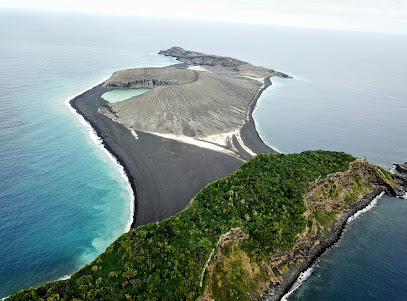
Ha'amonga 'a Maui Trilithon
Explore Ha'amonga 'a Maui Trilithon, Tonga's ancient marvel, a symbol of Tongan culture and history surrounded by stunning natural beauty.
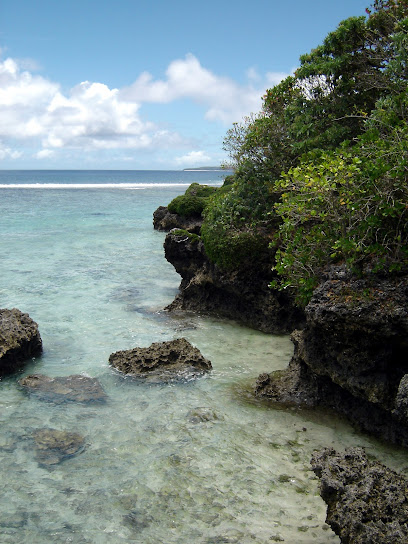
House of Tonga
Experience authentic Tongan hospitality at the House of Tonga, your go-to spot for comfortable stays and cultural adventures in Nuku'alofa.
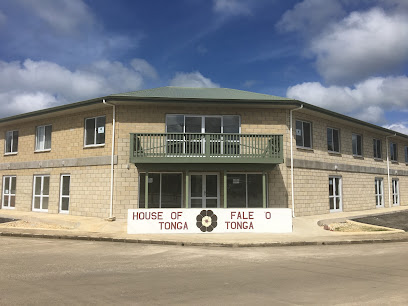
Captain Cook Landing Site
Discover the rich history and breathtaking views at Captain Cook Landing Site in Alaki, Tonga, a significant landmark of exploration and cultural heritage.
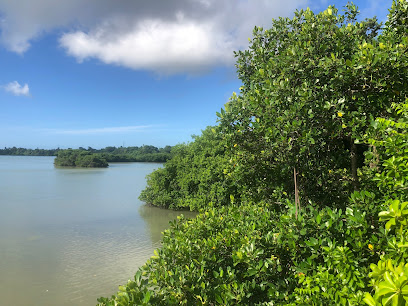
Paepae o Tele'a
Explore the ancient beauty and cultural heritage of Paepae o Tele'a, a historical gem in Mu'a, Tonga, rich in Polynesian history and stunning landscapes.
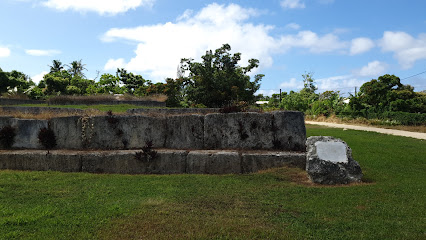
Tonga National Museum
Explore Tonga's vibrant culture and history at the Tonga National Museum, a captivating destination in Nuku'alofa showcasing the island's rich heritage.
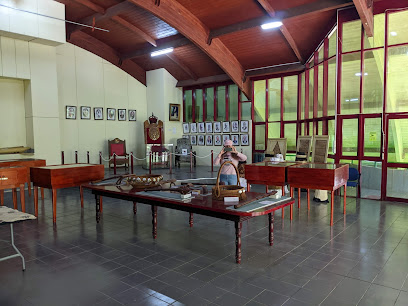
Maka Fa'akinanga
Explore the rich history and stunning beauty of Maka Fa'akinanga, a must-see landmark in Niutoua, Tonga, perfect for culture and history enthusiasts.
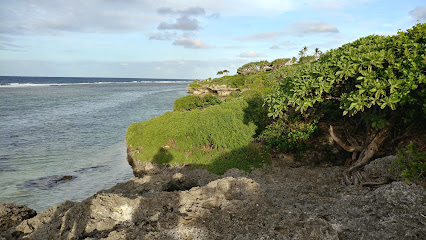
Utu'one
Experience the warm hospitality and local charm of Utu'one, a delightful bed & breakfast in Nuku'alofa, Tonga, perfect for exploring the island's beauty.
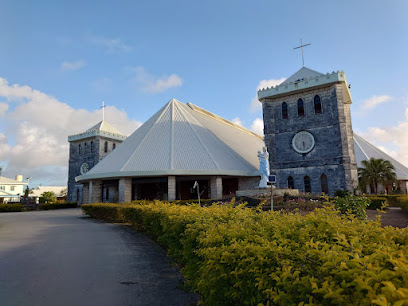
Pua-ko-Fanongo-Talanoa
Explore the historical significance of Pua-ko-Fanongo-Talanoa in Ha'avakatolo, Tonga, and immerse yourself in the island's rich cultural heritage.
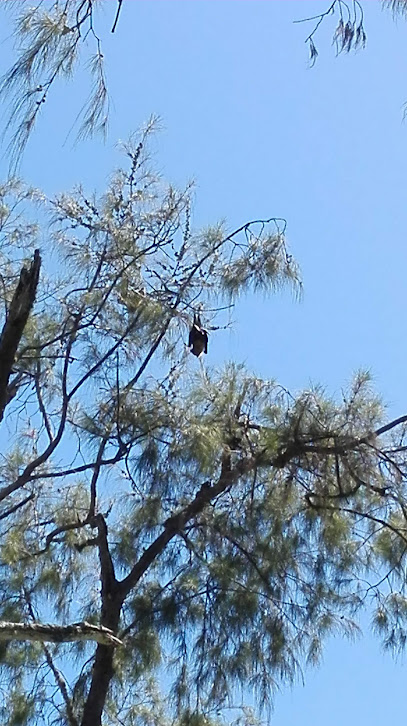
Hufangalupe
Discover the tranquil beauty of Hufangalupe, a stunning bridge in Fua'amotu, offering breathtaking views and a serene escape into Tonga's natural wonders.
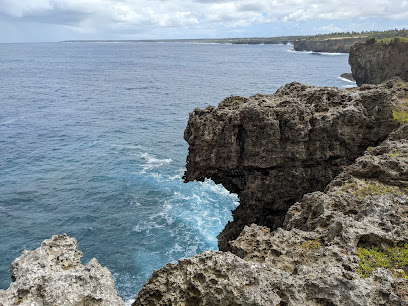
ʻEua National Park
Explore the breathtaking landscapes and unique wildlife of 'Eua National Park, a hidden gem in Tonga perfect for nature lovers and adventurers.
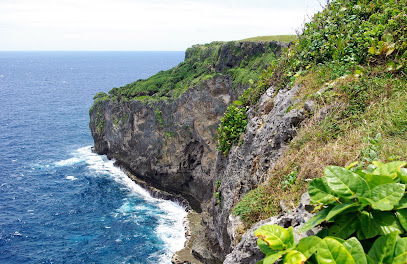
Essential places to dine
Little Italy Hotel
Discover the essence of Italy in Tonga at Little Italy Hotel—where comfort meets culinary excellence in Nuku'alofa.

Friends Cafe
Discover authentic Tongan flavors at Friends Cafe in Nuku'alofa - where every meal tells a story.
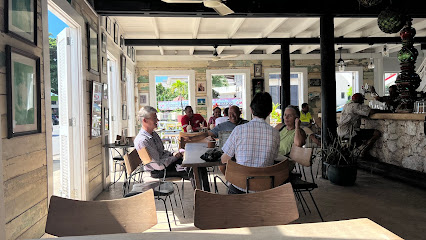
Cafe Escape
Discover Cafe Escape in Nuku'alofa: A delightful blend of local flavors and international cuisine in a cozy setting.
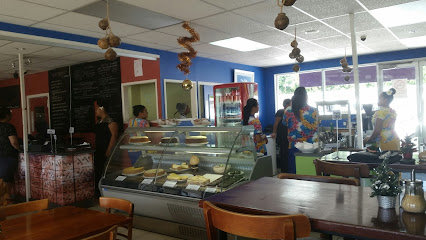
Billfish Bar and Restaurant
Discover delicious local flavors at Billfish Bar and Restaurant in Nuku'alofa – where Tongan hospitality meets vibrant nightlife.
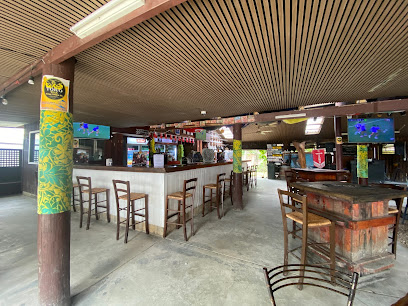
Chef Zero Restaurant
Experience authentic Tongan flavors at Chef Zero Restaurant, where local ingredients meet culinary creativity in an inviting atmosphere.
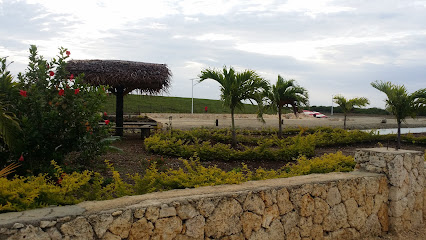
The TOP Restaurant and Lounge
Discover the vibrant flavors of Tonga at The TOP Restaurant and Lounge in Nuku'alofa – where culinary excellence meets breathtaking views.
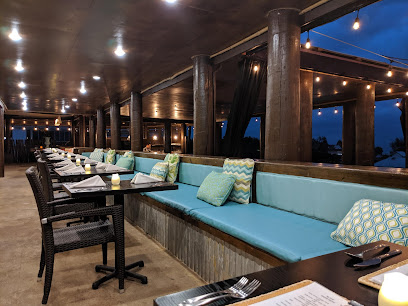
Young’s Kitchen
Experience the rich flavors of Tonga at Young's Kitchen in Nuku'alofa - a must-visit destination for authentic Tongan cuisine.
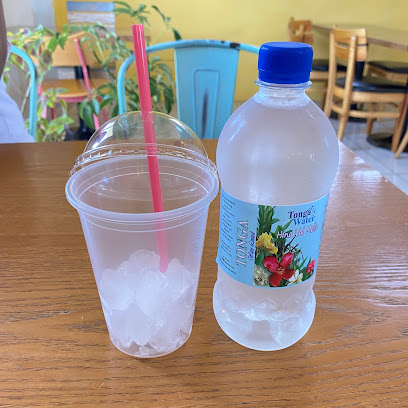
The Waterfront Cafe
Discover authentic Tongan cuisine at The Waterfront Cafe in Nuku'alofa with stunning ocean views and warm hospitality.
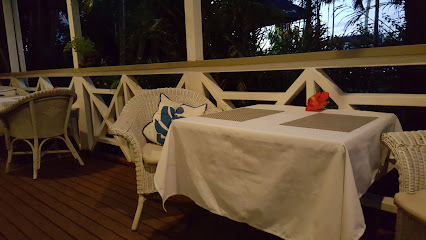
Nauti Ruby's Bar & Restaurant
Experience the vibrant flavors and stunning ocean views at Nauti Ruby's Bar & Restaurant in beautiful Nuku'alofa.
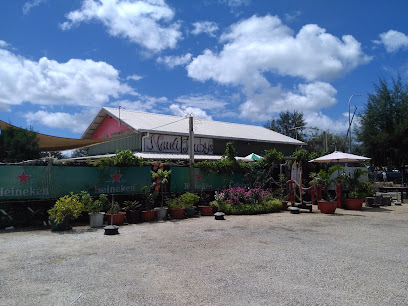
Sabrina's Chicken Vilovilo
Experience authentic Tongan barbecue at Sabrina's Chicken Vilovilo in Nuku'alofa – where every bite tells a story.
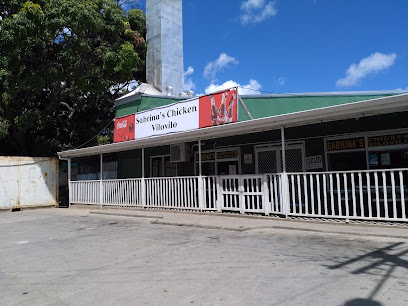
Tropical Taste
Discover authentic Tongan cuisine at Tropical Taste in Nuku'alofa—where every dish tells a story of local flavors and fresh ingredients.
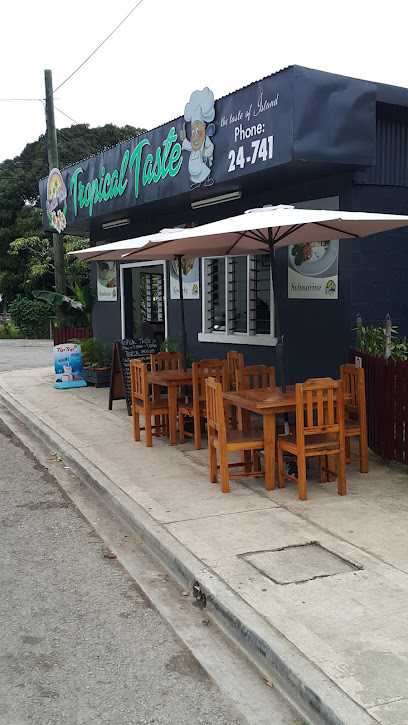
Utu'one
Experience Tongan hospitality at Utu'one Bed & Breakfast in Nuku'alofa—your cozy retreat near beautiful harbors and delicious local dining.
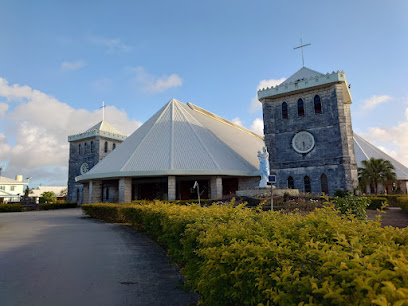
Moli Green Cafe
Discover Moli Green Cafe in Nuku'alofa – where exceptional coffee meets serene surroundings for an unforgettable experience.
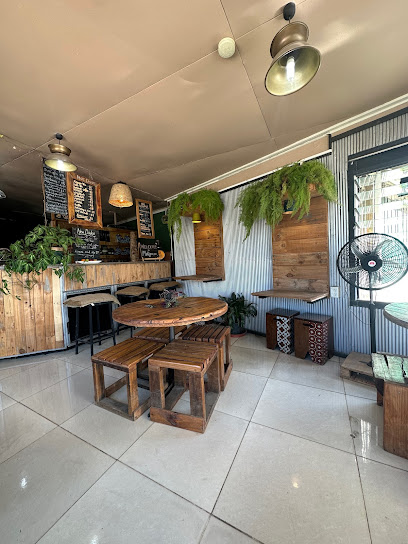
'Ofeina Restaurant
Experience authentic Tongan cuisine at 'Ofeina Restaurant, where family-friendly dining meets vibrant island culture.
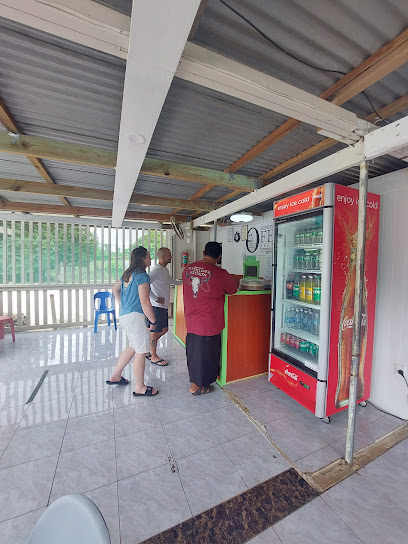
tiger inn
Discover the authentic taste of Tonga at Tiger Inn, where local flavors and warm hospitality create an unforgettable dining experience.
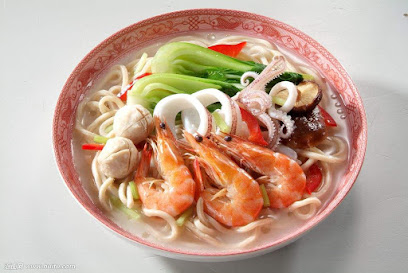
Markets, malls and hidden boutiques
Talamahu Market
Explore Talamahu Market: A vibrant fresh food market in Nuku'alofa, showcasing local produce, delicacies, and unique Tongan handicrafts.
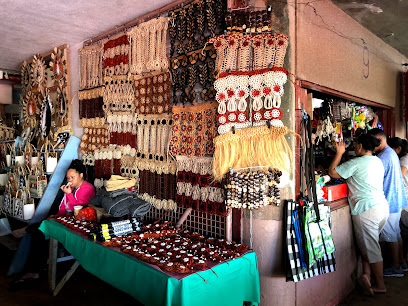
Hiki 'O Tonga
Explore Hiki 'O Tonga, Nuku'alofa's vibrant shopping mall, offering local crafts, delicious cuisine, and a taste of Tongan culture.
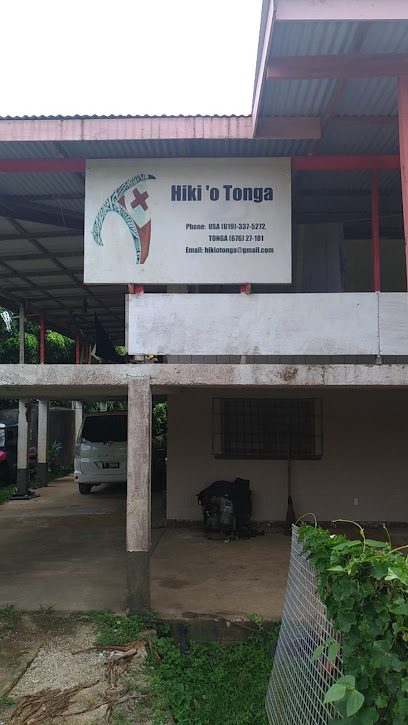
EZ TONGA ONLINE SHOPPING
Explore the best of Tongan culture and products at EZ Tonga Online Shopping, your premier destination for local goods in Nuku'alofa.

Si'i Kae Ola Supermarket
Discover the vibrant offerings of Si'i Kae Ola Supermarket in Nuku'alofa, where local flavors and international goods come together.
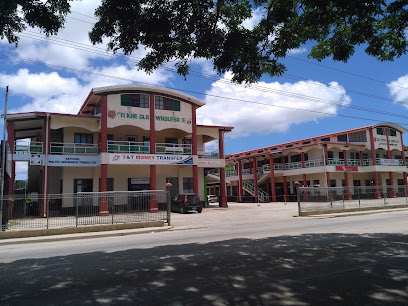
Langafonua Handicraft Centre and Gallery
Experience authentic Tongan artistry at Langafonua Handicraft Centre and Gallery, a cultural treasure in Nuku'alofa, showcasing unique local crafts.
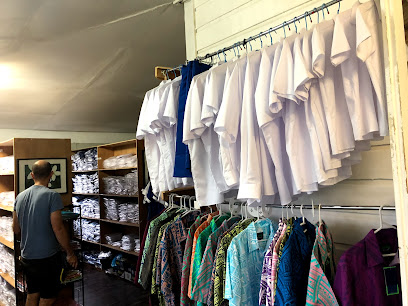
Friendly Island Bookshop
Explore the rich tapestry of Tonga's culture and history through literature at Friendly Island Bookshop, your literary haven in Nuku'alofa.
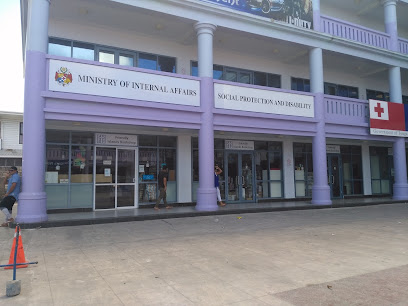
OE Store Office Equipment
Explore the vibrant shopping scene in Nuku'alofa at OE Store Office Equipment, your destination for unique local office supplies and more.
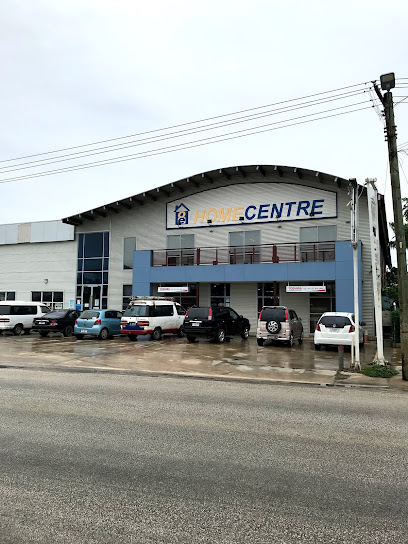
Fakafeta'i Store
Discover the charm of Fakafeta'i Store, a Tongan family-owned general store offering local goods and warm hospitality in the heart of Nuku'alofa.
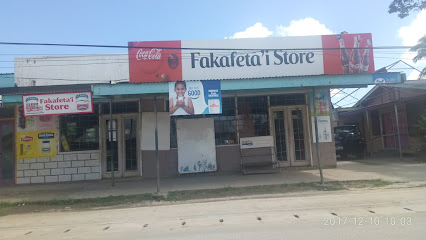
Leiola
Explore a diverse selection of beers at Leiola, Nuku'alofa's premier beer store, celebrating local and international brews in a friendly atmosphere.
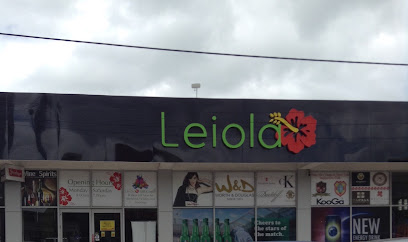
Value City (Tonga) Ltd.
Explore a vibrant second-hand shopping experience in Nuku'alofa, where every item tells a story and unique treasures await.
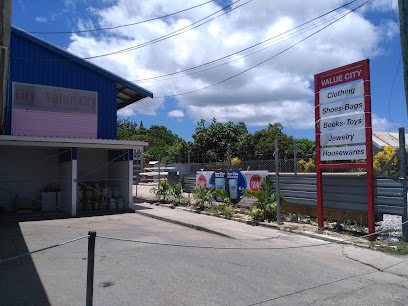
Fiefia Travel
Explore Tonga with Fiefia Travel, your local source for adventure gear and insights into the best attractions and experiences in Tofoa.

Le-Ata Tonga
Discover the essence of Tongan culture through unique clothing at Le-Ata Tonga, a charming boutique in Nuku'alofa that showcases local craftsmanship.
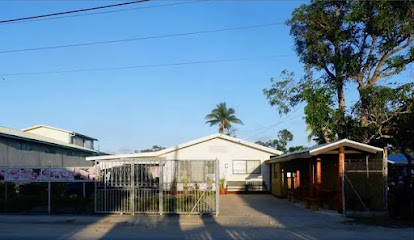
FORTUNE ISLAND SHOPPING CENTER
Experience the heartbeat of Tonga at Fortune Island Shopping Center, where vibrant shopping meets delightful local cuisine in Nuku'alofa.
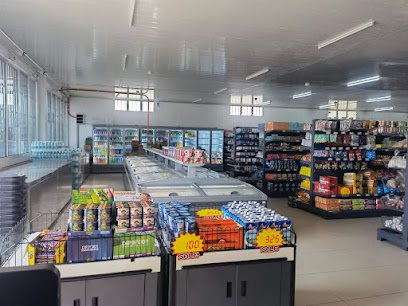
Island Furniture Ltd
Explore unique Tongan craftsmanship at Island Furniture Ltd in Nuku'alofa—your destination for beautiful, locally made furniture and decor.

Hangai Tokelau Fea
Discover the vibrant culture of Tonga at Hangai Tokelau Fea, your go-to store for unique local crafts and souvenirs in Nuku'alofa.

Essential bars & hidden hideouts
Tanoa International Dateline Hotel
Discover comfort and relaxation at Tanoa International Dateline Hotel, your perfect base in Nuku'alofa for exploring Tonga's stunning landscapes.

Little Italy Hotel
Experience the charm of Little Italy Hotel in Tonga, where authentic Italian cuisine meets warm Tongan hospitality for an unforgettable dining experience.

Friends Cafe
Discover the flavors of Tonga at Friends Cafe, where local ingredients meet warm hospitality in Nuku'alofa's vibrant setting.
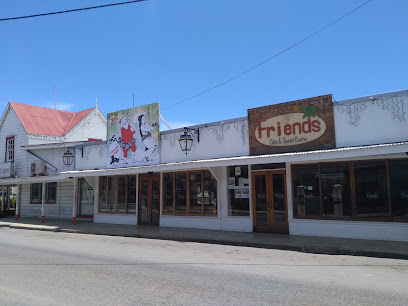
Anahulu Cave
Explore the stunning Anahulu Cave in Haveluliku, Tonga, and immerse yourself in its breathtaking natural beauty and rich cultural history.
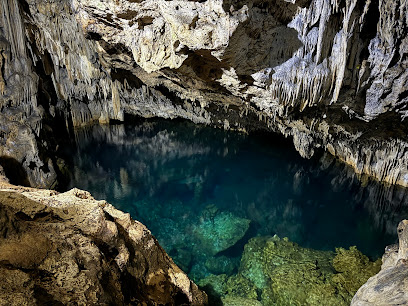
Billfish Bar and Restaurant
Experience the best of Tongan cuisine and vibrant nightlife at Billfish Bar and Restaurant in Nuku'alofa.
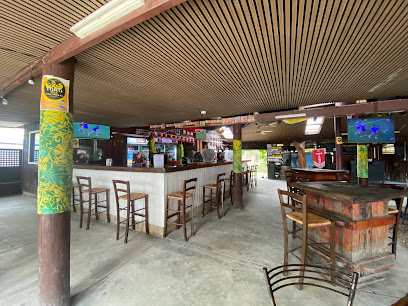
Chef Zero Restaurant
Experience the best of Tongan and international cuisine at Chef Zero Restaurant in Nuku'alofa, where every meal is a celebration of flavor.
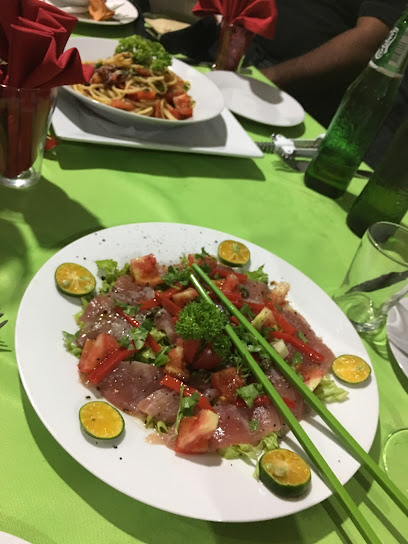
The TOP Restaurant and Lounge
Discover the authentic tastes of Tonga at The TOP Restaurant and Lounge, where culinary delights meet stunning views in Nuku'alofa.
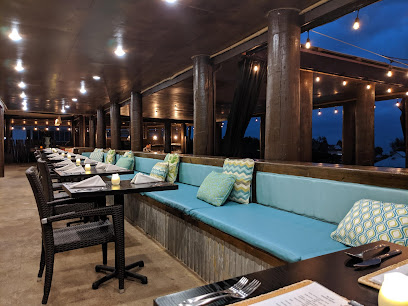
'Oholei Beach Resort
Discover the magic of Tonga at 'Oholei Beach Resort, where stunning beaches and rich culture come together for an unforgettable experience.
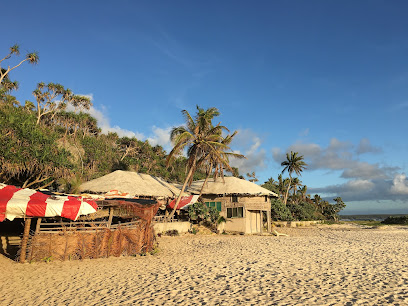
Mum's Cafe Nukualofa
Experience the authentic taste of Tonga at Mum's Cafe, a beloved restaurant in Nuku'alofa known for its fresh, local dishes and friendly atmosphere.
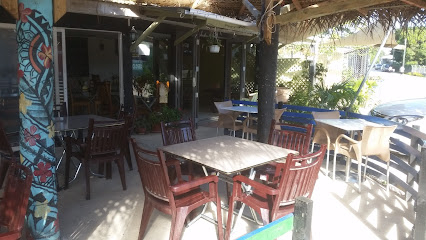
Vuna Wharf
Experience the tranquil charm of Vuna Wharf in Nuku'alofa - a stunning marina surrounded by vibrant local culture and breathtaking ocean views.
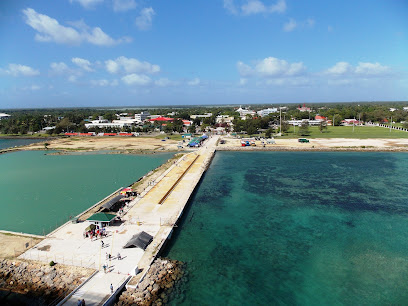
Lunarossa Deli
Experience the authentic flavors of Tonga at Lunarossa Deli, a local favorite for delicious takeout in Nuku'alofa.
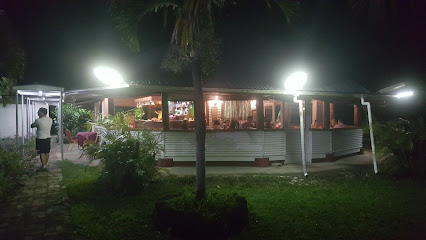
Ngutulei Bar & Restaurant
Experience the vibrant flavors of Tonga at Ngutulei Bar & Restaurant, a culinary haven in Nuku'alofa's heart, offering local delicacies and tropical drinks.
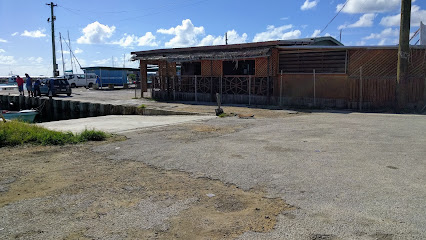
Young’s Kitchen
Discover the exquisite flavors of Tonga at Young’s Kitchen, a top-rated restaurant in Nuku'alofa offering a unique dining experience.
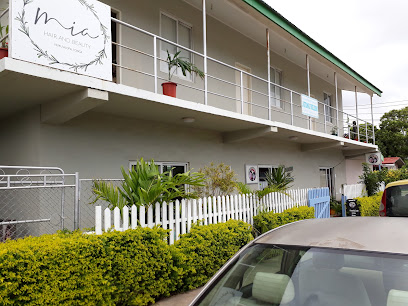
Nauti Ruby's Bar & Restaurant
Discover Nauti Ruby's Bar & Restaurant in Nuku'alofa, a lively spot for authentic Tongan cuisine and refreshing drinks with stunning waterfront views.
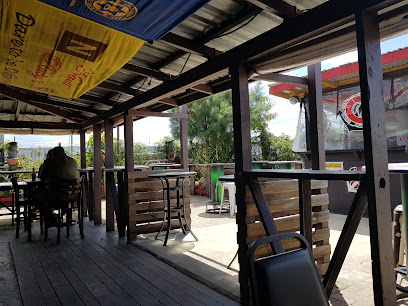
Local Phrases about Ofu Island
-
- HelloMalo e lelei
[mah-loh eh leh-leh] - GoodbyeNofo a
[noh-foh ah] - YesIo
[ee-oh] - NoʻIkai
[ee-kai] - Please/You're welcomeFakamolemole
[fah-kah-moh-leh-moh-leh] - Thank youMālō
[mah-loh] - Excuse me/SorryFakamālō
[fah-kah-mah-loh] - How are you?ʻEku haʻu?
[eh-koo hah-oo] - Fine. And you?Ola. Pea ʻou?
[oh-lah. peh-ah oh] - Do you speak English?Ko e ʻā fakaʻenglisi?
[koh eh ah fah-kah-eng-lee-see] - I don't understandʻIkai lava
[ee-kai lah-vah]
- HelloMalo e lelei
-
- I'd like to see the menu, pleaseKātaki kia fakatā ki he meniu
[kah-tah-kee kee-ah fah-kah-tah kee heh meh-nee-oo] - I don't eat meatʻIkai au fakakai kia fīli
[ee-kai ow fah-kah-kai kee-ah fee-lee] - Cheers!Mālo!
[mah-loh] - I would like to pay, pleaseKātaki kia totongi
[kah-tah-kee kee-ah toh-tohn-gee]
- I'd like to see the menu, pleaseKātaki kia fakatā ki he meniu
-
- Help!Malō!
[mah-loh] - Go away!ʻAlu ki tua!
[ah-loo kee too-ah] - Call the Police!Fonua ki he polisi!
[foh-noo-ah kee heh poh-lee-see] - Call a doctor!Fonua ki he kautaha!
[foh-noo-ah kee heh kow-tah-hah] - I'm lostNaʻe ʻalu e
[nah-eh ah-loo eh] - I'm illNaʻe ʻoku ʻoatu
[nah-eh oh-koo oh-ah-too]
- Help!Malō!
-
- I'd like to buy...Kātaki kia fakatau...
[kah-tah-kee kee-ah fah-kah-tow] - I'm just lookingTe u te tafakari
[teh oo teh tah-fah-kah-ree] - How much is it?ʻE fakaʻefe he taʻu?
[eh fah-kah-eh-feh heh tah-oo] - That's too expensiveʻOku mahino kehe
[oh-koo mah-hee-noh keh-heh] - Can you lower the price?Ko e u lava ke taʻu?
[koh eh oo lah-vah keh tah-oo]
- I'd like to buy...Kātaki kia fakatau...
-
- What time is it?Koe hua fē ka taimi?
[koh-eh hoo-ah feh kah tah-ee-mee] - It's one o'clockKo e taha
[koh eh tah-ha] - Half past (10)Hate luma (10)
[hah-teh loo-mah (10)] - MorningTaimi fakaata
[tah-ee-mee fah-kah-ah-tah] - AfternoonTaimi fakafō
[tah-ee-mee fah-kah-foh] - EveningTaimi fakaloto
[tah-ee-mee fah-kah-loh-toh] - YesterdayʻUa
[oo-ah] - TodayʻOtu
[oh-too] - TomorrowʻApongipongi
[ah-poh-ng-ee-poh-ng-ee] - 1Taha
[tah-ha] - 2Ua
[oo-ah] - 3Tolu
[toh-loo] - 4Fā
[fah] - 5Nima
[nee-mah] - 6Ono
[oh-noh] - 7Fitu
[fee-too] - 8Valu
[vah-loo] - 9Hiva
[hee-vah] - 10Ngata
[ngah-tah]
- What time is it?Koe hua fē ka taimi?
-
- Where's a/the...?Ko fekau...
[koh feh-kah-ow] - What's the address?Koe taha e fetuʻutaki?
[koh-eh tah-ha eh feh-too-oo-tah-kee] - Can you show me (on the map)?Ko e u lava ke u ʻomi mai (ʻi he lēmapa)?
[koh eh oo lah-vah keh oo oh-mee mah-ee ee heh lay-mah-pah] - When's the next (bus)?Ko e taimi hoko?
[koh eh tah-ee-mee hoh-koh] - A ticket (to ....)ʻE tikititi (ki ...)
[eh tee-kee-tee-tee kee]
- Where's a/the...?Ko fekau...
History of Ofu Island
-
Ofu Island, part of the Vava'u group in Tonga, has a rich history of early Polynesian settlement. Archaeological evidence suggests that the first Polynesians arrived on the island around 1000 BCE. These early settlers brought with them a sophisticated navigation system, agricultural practices, and societal structures that have influenced the culture of Ofu Island to this day.
-
Traditional Tongan society on Ofu Island was organized into a hierarchical system with chiefs (or 'eiki) at the top. The island's social and political life revolved around these chiefs, who controlled land and resources. The people of Ofu engaged in fishing, agriculture, and the crafting of tools and decorative items from local materials. This period also saw the construction of large stone monuments and terraced tombs, which still stand as a testament to the island's rich cultural heritage.
-
European contact with Ofu Island began in the late 18th century, with explorers like Captain James Cook making note of the island during their voyages. The 19th century saw the arrival of Christian missionaries, who significantly impacted the island's culture and religion. The London Missionary Society established a presence on the island, leading to the conversion of many locals to Christianity. This period also brought changes in traditional practices and the introduction of Western education and medicine.
-
During World War II, Ofu Island gained strategic importance due to its location in the South Pacific. The island was used by Allied forces as a base for operations against the Japanese. The presence of military personnel brought temporary changes to the island's infrastructure and economy, with airstrips and military facilities being constructed. After the war, these facilities were largely abandoned, but they left a lasting impact on the island's landscape and history.
-
In recent decades, Ofu Island has embraced tourism, leveraging its natural beauty and cultural heritage to attract visitors. The island is known for its pristine beaches, clear waters, and vibrant coral reefs. Efforts have been made to preserve the island's traditional culture while also providing modern amenities for tourists. Annual festivals and cultural events celebrate Ofu's history, and the island's residents continue to practice traditional crafts, music, and dance, ensuring that their rich cultural legacy is passed down to future generations.
Ofu Island Essentials
-
Ofu Island is part of the Haʻapai group in Tonga. The nearest international airport is Fuaʻamotu International Airport on Tongatapu. From there, you can take a domestic flight to Lifuka Island in Haʻapai, operated by Real Tonga Airlines. Once in Lifuka, you can arrange a boat transfer to Ofu Island. It's advisable to book these transfers in advance to ensure availability.
-
Ofu Island is relatively small, making it easy to explore on foot. For longer distances, you can rent bicycles or arrange for local boat rides to visit nearby islets. There are no public transportation services on the island, but locals are often willing to offer rides for a small fee. Renting a kayak is also a popular option for exploring the coastline and nearby islands.
-
The official currency of Tonga is the Tongan Paʻanga (TOP). Credit cards are rarely accepted on Ofu Island, so it is essential to carry enough cash for your stay. There are no ATMs on the island, so make sure to withdraw cash in Tongatapu or Lifuka before arriving. Small denominations are recommended for easier transactions.
-
Ofu Island is generally safe for tourists, with a low crime rate. However, it is always wise to take standard precautions: avoid walking alone at night, keep an eye on your belongings, and be cautious when swimming or engaging in water activities. There are no specific high-crime areas targeting tourists, but it is always best to stay vigilant.
-
In case of an emergency, the local emergency number is 911. There is a small medical clinic on the island for minor health issues, but for serious medical emergencies, you may need to be transported to the larger medical facilities on Lifuka or Tongatapu. It is highly recommended to have comprehensive travel insurance that covers medical emergencies and evacuation. For minor ailments, bring a basic first aid kit and any necessary medications.
-
Fashion: Do dress modestly, especially when visiting villages or religious sites. Avoid wearing revealing clothing. Religion: Do respect local customs and traditions. Attend Sunday church services if invited, as religion is a significant part of Tongan culture. Public Transport: There is no public transport, but do be respectful and courteous when using local boat services. Greetings: Do greet locals with a friendly 'Mālō e lelei' (Hello). A handshake is also common. Eating & Drinking: Do try local Tongan dishes and accept food offerings graciously. Don’t refuse hospitality, as it is considered impolite.
-
To experience Ofu Island like a local, engage with the community by participating in traditional feasts (umu) and cultural events. Visit the local markets for fresh produce and handmade crafts. Fishing and snorkeling are popular activities; locals are often willing to share the best spots. Take part in a kava ceremony to experience an essential part of Tongan social life. Lastly, always ask for permission before taking photographs of people or private property.
Trending Landmarks in Ofu Island
Nearby Cities to Ofu Island
-
Things To Do in Pangai
-
Things To Do in Foa
-
Things To Do in Nuku'alofa
-
Things To Do in Kolovai
-
Things To Do in Neiafu
-
Things To Do in Ha'apai
-
Things To Do in Vava'u
-
Things To Do in Eua
-
Things To Do in Mulifanua
-
Things To Do in Salelologa
-
Things To Do in Lalomanu
-
Things To Do in Savai'i
-
Things To Do in Apia
-
Things To Do in Leone
-
Things To Do in Falealupo





